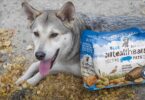As a pet owner, you might have wondered, “Can dogs eat beets?” The answer is yes, but with some important considerations. Beets can be a nutritious addition to your dog’s diet when served in moderation.
Beets are packed with fiber, vitamins, and minerals that can benefit your dog’s health. They provide essential nutrients like zinc, vitamin C, and potassium, which support immune function and overall wellbeing. However, it’s important to be aware of potential risks, such as gastrointestinal upset and oxalate concerns, especially for certain breeds.
Many commercial dog foods already include beets as an ingredient, highlighting their value in canine nutrition. However, it’s crucial to introduce them safely and in appropriate portions. Before making any changes to your dog’s diet, consulting with a veterinarian is always a good idea.
Understanding the Nutritional Benefits of Beets for Dogs
Beets are a nutrient-rich vegetable that offers several health benefits for dogs. They are packed with essential vitamins and minerals like Vitamin C, Vitamin A, potassium, magnesium, and manganese. These nutrients support immune function and skin health, making beets a great addition to your dog’s diet.
The fiber content in beets aids digestion, while antioxidants protect cells from damage. This makes beets a healthy choice for supporting your dog’s overall wellbeing.
Beets can be served raw or cooked. Raw beets retain more nutrients but may be harder for dogs to digest. Cooked beets are easier on the stomach but lose some nutrients during cooking. Always introduce beets in moderation to ensure your dog’s diet remains balanced.
Can Dogs Eat Beets: Safety and Moderation Guidelines
Moderation is key when introducing beets to your dog’s diet. While beets offer essential nutrients, their natural sugars and oxalate levels can pose risks if overfed.
Beets provide vital nutrients like fiber, vitamins, and minerals that support skin health and digestion. However, overfeeding can lead to gastrointestinal upset or even toxin buildup.
Natural sugars in beets, despite their benefits, require careful portion control. Limit beet servings to a few times a week to maintain a balanced diet.
Consult your veterinarian to determine the right portions for your dog based on size and health. For detailed guidelines, visit trusted sources.
How to Safely Prepare Beets for Your Dog
Preparing beets for your dog involves a few simple steps to ensure they are safe and digestible. Whether you choose raw or cooked methods, proper cleaning and preparation are essential to maximize the benefits for your dog’s diet.
Raw vs. Cooked Methods
Raw beets can be a nutritious addition but are harder for dogs to digest. They should be thoroughly washed and peeled to remove any tough skin that might cause choking or digestive issues. Cooked beets, on the other hand, are easier on the stomach and can be baked, boiled, or roasted to enhance digestibility.
Proper Cleaning and Peeling Techniques
Always scrub beets under clean water to remove dirt and pesticides. Peeling is crucial to eliminate the tough outer layer, making them safer and easier for your dog to eat. After cooking, you can mash or puree beets to create a nutritious addition to your dog’s meals.
Cooked beets are a great way to add fiber and manganese to your dog’s diet. They support healthy digestion and provide essential vitamins. Remember to avoid seasoning, as it can harm your dog. Always introduce beets in moderation to keep your dog’s diet balanced and consult your veterinarian for portion advice.
For more detailed guidelines on preparing beets and other raw foods, visit this resource to ensure your dog enjoys the full benefits safely.
Risks and Considerations When Feeding Beets
While beets can offer health benefits for your pet, there are important risks to consider. High oxalate levels in beets can contribute to urinary stones in susceptible dogs, and raw beets may pose a choking hazard. Moderation is crucial, and consulting a veterinarian before introducing beets is always a good idea.
Oxalate Content and Urinary Health
Beets contain high levels of oxalates, which can increase the risk of kidney stones, particularly in breeds like Yorkshire Terriers and Miniature Schnauzers. While beets are nutritious, they should be given in limited amounts to avoid potential health issues.
Potential Digestive Issues
The high sugar and fiber content in beets can cause digestive upset if fed too frequently. Symptoms may include diarrhea or constipation. Introducing beets gradually and monitoring your dog’s reaction is essential to maintain their digestive health.
It’s important to balance the health benefits of beets with the associated risks. Always consult with your veterinarian to determine the right portion size for your pet and to address any concerns about urinary or digestive health.
Cooking Methods and Serving Ideas
Cooking beets can make them safer and more digestible for your pet. Whether you choose to bake, roast, or boil, each method helps retain nutrients while reducing risks.
Baking and roasting are excellent ways to prepare beets. These methods bring out their natural sweetness without adding any seasoning, keeping them safe for your pet. Boiling is another great option, as it softens the vegetable while preserving most of its nutrients.
Baking, Roasting, and Boiling Techniques
When cooking beets, avoid adding any seasoning to ensure they remain a healthy, vegetable dog treat. Simply clean and peel the beets, then bake or roast them at 350°F until tender. Boiling is straightforward—just cook until soft, then mash or puree for easier digestion.
Cooked beets have a lower oxalate concentration compared to raw ones, making them a better choice for pets. This reduction in oxalate content helps minimize the risk of urinary issues. Plus, cooking breaks down the fiber, making it gentler on your pet’s stomach.
Remember, moderation is key. Beets should only make up a small portion of your pet’s diet. Always consult your veterinarian to determine the right serving size based on your dog’s size and health needs.
Comparing Fresh, Canned, and Pickled Beets
When considering beets as an ingredient for your pup, it’s important to evaluate the different forms they come in. Fresh, canned, and pickled beets each have unique benefits and drawbacks that can impact your dog’s diet.
Fresh Beets: The Natural Source
Fresh beets are the most natural source and offer a robust mineral profile. They are packed with fiber, potassium, and vitamins, making them a nutrient-rich ingredient for your dog. Fresh beets contain no additives, preserving their natural benefits. However, they require proper preparation to ensure they’re safe and digestible for your pup.
Canned Beets: A Convenient Option
Canned beets can be a convenient alternative, but it’s crucial to choose varieties with no added salt or preservatives. These canned options should be free from extra ingredients that could harm your dog. Always consult the ingredient list to ensure they meet safe standards for your pup.
Pickled Beets: Not Recommended
Pickled beets are not a safe choice for dogs due to added ingredients like high sugar and onions, which can be harmful. These additives make pickled beets unsuitable as a source of nutrition for your pet.
For trusted advice, consult your veterinarian to ensure any changes to your dog’s diet are safe. They can provide personalized recommendations based on your pup’s specific needs and health conditions.
Incorporating Other Vegetables for a Balanced Dog Diet
A well-rounded diet is essential for your dog’s health, and while beets offer numerous benefits, they shouldn’t be the only vegetable on the menu. Introducing a variety of safe, nutrient-rich vegetables can complement the benefits of beets and ensure your dog gets a broad spectrum of vitamins and minerals.
Safe Complementary Vegetables
Several vegetables are not only safe for your dog but also packed with antioxidants and nutrients. Carrots, for instance, are high in beta-carotene, which supports vision and immune function. Green beans are another excellent choice, offering fiber, vitamins, and minerals without excess calories. Sweet potatoes are rich in vitamins A and C, providing energy and supporting healthy digestion.
Cooked beets can be mixed with these vegetables to create balanced, flavorful meals. For example, combining cooked beets with green beans and carrots adds a variety of textures and flavors, making mealtime more engaging for your dog.
Consulting Your Veterinarian
While introducing new foods, it’s crucial to monitor the overall content of vitamins and minerals to prevent imbalances. Excessive consumption of any single vegetable, including beets, can lead to issues like urinary stones. Always consult your veterinarian before making significant changes to your dog’s diet.
For tailored dietary advice and to explore more feeding options, visit this resource to ensure your dog enjoys a varied and nutritious diet.
Final Thoughts on Adding Beets to Your Dog’s Diet
Adding beets to your dog’s diet can offer both benefits and risks. Beets are rich in nutrients like vitamins, minerals, and antioxidants, which can support your dog’s overall health. However, it’s important to remember that moderation is key. Overfeeding beets can lead to issues like gastrointestinal upset or even contribute to urinary stones due to their high oxalate content.
Proper preparation is essential to ensure your dog’s safety. Raw beets can pose a choking hazard, especially for smaller breeds, so cooking them is often a better option. Cooking not only makes beets easier to digest but also reduces their oxalate levels, making them safer for your pet.
Incorporating beets into your dog’s meals should be part of a balanced approach. Pairing them with other vegetables like carrots and green beans can create a nutritious and varied diet. Always consult your veterinarian before introducing new foods to ensure they align with your dog’s specific needs and health conditions.
Remember, every dog is different. Monitor your pet’s reaction to beets and adjust their portions accordingly. With careful preparation and moderation, beets can be a healthy and rewarding addition to your dog’s diet. Always prioritize your dog’s well-being and seek professional advice when needed.
FAQ
Are beets a healthy addition to my dog’s diet?
Yes, beets can be a nutritious addition when given in moderation. They provide essential vitamins, minerals, and antioxidants that support overall health.
What are the key nutrients in beets for dogs?
Beets are rich in fiber, vitamins, and minerals like manganese, which supports skin health and digestion in dogs.
Can I feed my dog raw beets?
While raw beets are safe, cooking them can make the nutrients more accessible and easier for your dog to digest.
How should I prepare beets for my dog?
Wash and peel beets thoroughly. Cooking them by boiling or roasting is recommended to enhance digestibility and nutrient absorption.










Leave a Comment